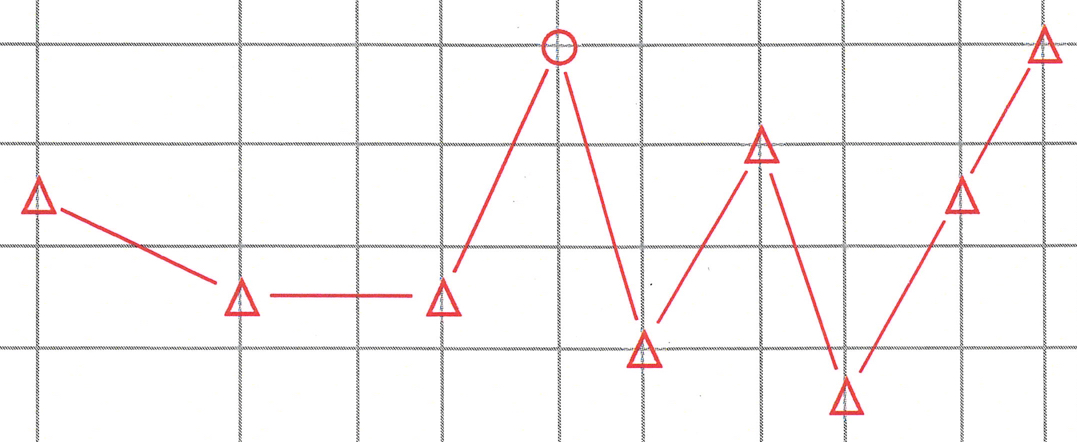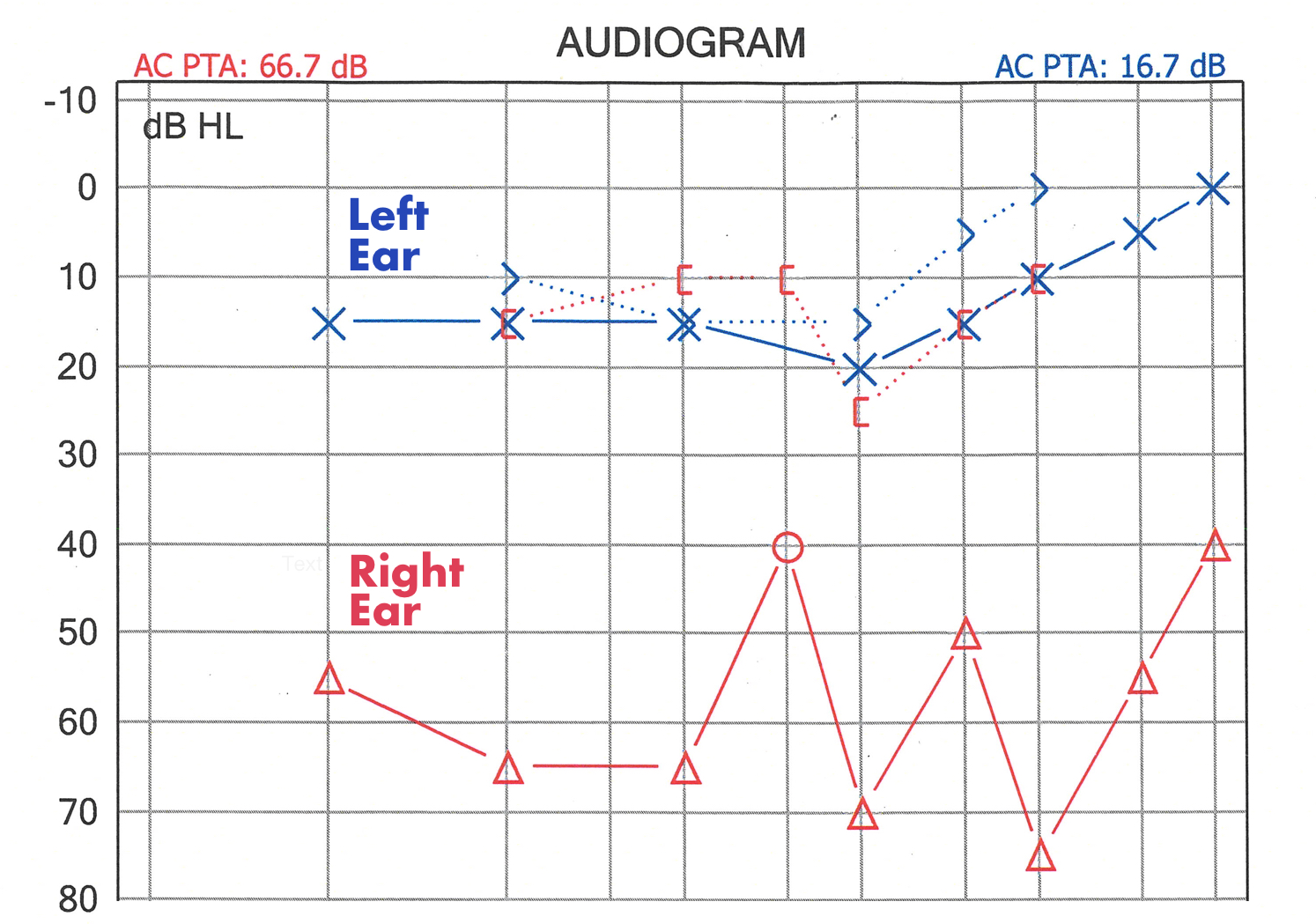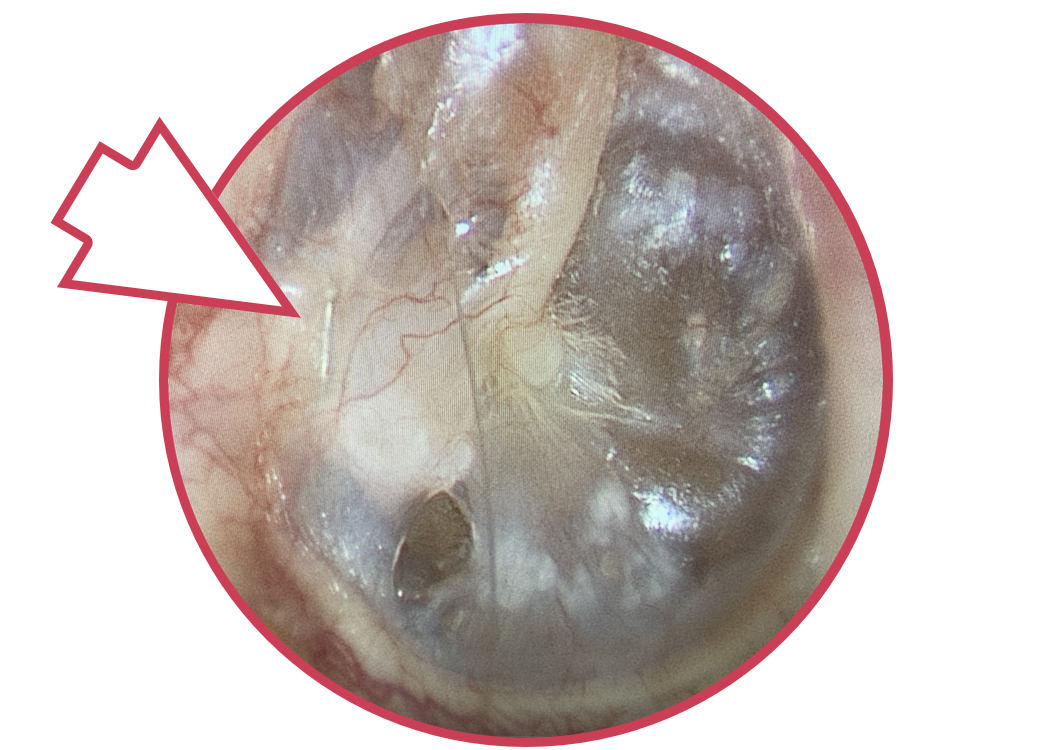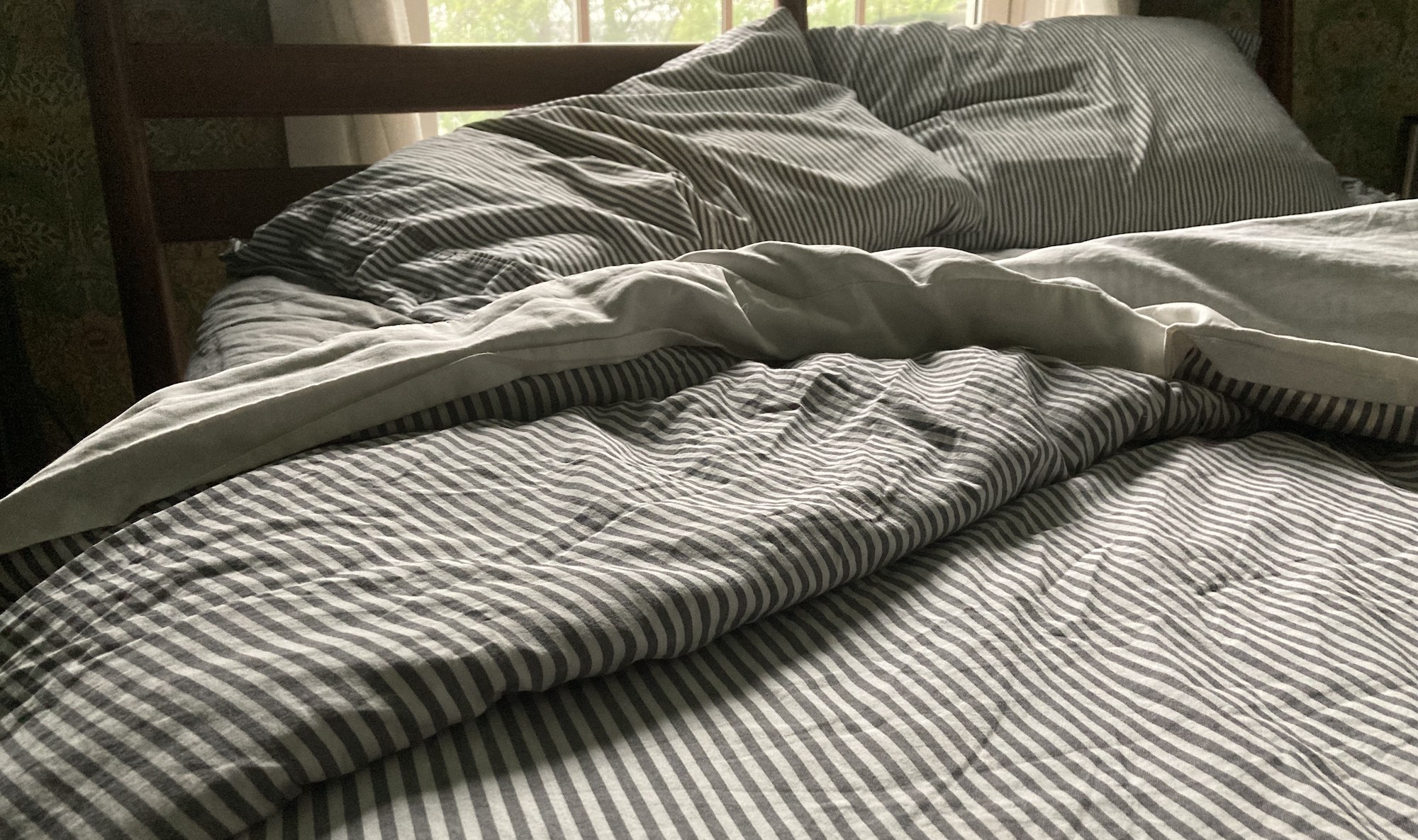Update: Ear Surgery
August 6, 2022
As I mentioned in a recent post, earlier this year my right ear began to get severely fatigued after band practices. The symptoms included ear pressure, hearing diminishment, and headaches. Wearing ear protection didn't help. It became disorienting and stressful for me, which led me to the Mayo Clinic's Ear, Nose, and Throat department in Rochester, Minnesota. But there's a bigger picture.
Childhood History
As a young child I was prone to ear infections, and I had to have a few ear tubes installed. This resulted in deformations of the bones of my right middle ear. If you're not familiar, the three bones in your middle ear (the "ossicles") conduct sound from your eardrum into your cochlea and auditory nerve. When the bones are deformed, they don't conduct sound as well. That's how I ended up with poor hearing in my right ear.
I had two surgeries as a child to try to improve the sound conduction in my middle ear, but neither were successful. For the past 25 years I've learned to live with this. In fact, it's all I've ever really known, so I haven't known what I've been missing. Fortunately, my left ear has always had great hearing.
Here are the results of an audiology test I took at the Mayo Clinic this spring. You can see the left ear (the blue line) hears great while the right ear (the red line) has "moderately severe" hearing loss.

The Doctor's Opinion
At Mayo they gave me an audiology test and took a CT scan of my right ear. I then met with Dr. Colin Driscoll, a surgeon who specializes in middle ear hearing loss. Here's what he told me:
We have two kinds of hearing: 1) the sound that travels through our eardrum, middle ear, and into the inner ear and 2) the sound that travels through our skull and into our inner ear. While I have impairment in the first kind of hearing, I have excellent bone conduction hearing. That proves that most of my hearing loss is due to the ossicles in my middle ear. This is actually promising because surgery can help restore natural hearing in that case.
The CT scan suggested that one of my ossicles had become fused to a nearby structural bone. In order to conduct sound well, the ossicles need to vibrate freely. If one of them is fused to something else the vibration energy coming into the middle ear gets siphoned off before it makes it to the inner ear.

Dr. Driscoll said all signs indicate that a surgery on my middle ear could make a big difference in my hearing. Interestingly, he pointed out that there was already a piece of wire in my ear from the last surgery when I was a child. He took a picture of it. I guess my ossicles were so deformed that the previous surgeon attempted to bypass them by running a wire directly from my eardrum to the base of the inner ear, or something like that.
Surgery Day
I went in for surgery on Thursday, July 28. Technically, the procedure was called a "tympanoplasty" or "stapedectomy". I was very anxious about it. While the prospects looked good, there were still some risks. There was the possibility of making my hearing worse, making my right ear deaf, or even reducing my sense of smell or impairing my facial movements. I went for it anyway. I was hopeful that not only would my hearing improve but so would the troubling fatigue issues I experienced earlier in the year.
All the staff at Mayo were incredible. They put me at ease, and every step of the way they communicated clearly what was going to happen. I laid on the medical bed as they wheeled me into the operating room. From my vantage point staring up at the ceiling I caught glimpses of the bright room with the sophisticated medical equipment, and I was overcome with gratitude for the advancements in technology and medicine in my lifetime. I was relieved to finally see Dr. Driscoll by my side. He said, "It's good to see you, Jason! I'm going to do my best not to make things worse. I'm going to try to make them better!" He spoke to the heart of what I feared, and it comforted me. Within a couple minutes I was asleep from the anesthesia.
A couple hours later I slowly woke up. Kallie was there. I was having a long personal conversation with the nurse, most of which I don't remember. I was sipping on a cup of ice water and eating gold fish crackers. Dr. Driscoll came in and said the surgery went exactly as planned. They freed up one of my ossicles from the nearby structural bone. In addition, they grafted a piece of cartilage between my eardrum and the metal wire.

The fog of anesthesia was lifting after about 30 minutes, so it was time to go home. I carefully moved into a wheelchair, and a nurse wheeled me down to the entrance of the hospital where Kallie had brought the car. I was still very woozy as Kallie drove us the hour home. Needless to say, my right ear felt strange, congested and gelatinous. I could hear all sorts of clicking, popping, and gushing inside my head. It was unnerving but not surprising. When I talked to Kallie I could hear my voice booming inside my head, like when I have a bad cold.
A New Experience
When we got home I sat down in bed for a while to rest. Overall, I felt pretty good. The wooziness went away quickly. I was mentally pretty sharp, and, despite the discomfort in my ear, I wasn't experiencing much pain at all.

Then I noticed something strange. Unthinkingly I drew my right hand across the bed sheets, an action which I must have done thousands of times before.
But this time I heard the sound of my fingers moving across the sheets in my right ear. I was stunned.
To double check what I heard, I cocked my right ear toward my sheets and scratched them with my fingernails. I heard the scratching loud and clear. I can't express how exhilarated I was to be hearing such a simple sound.
You have to understand that, while I've always been able to hear a little bit out of my right ear, I rarely perceived that sounds were emanating from my right side. My left ear has been so dominant that I've generally perceived most things as coming from my left side, even if they're actually coming from my right. So this experience of perceiving sound as emanating from my right is new.
The doctor told me my hearing would likely get worse before it gets better because of all the packing material they put on the eardrum to protect it while it heals. And yet, just a couple hours after the surgery I was already hearing more out of my right ear than ever before in my life. It was emotional. I got choked up.
More New Experiences
We sleep with a fan on at night. Normally I tune out the fan noise by sleeping with my good ear pressed into the pillow. Well, on my first night after the surgery when I pressed my good ear into the pillow I could still hear the fan noise in my right ear! In fact, I've had trouble sleeping the past week because the room noise is overpowering and I can't escape it.
The morning after my surgery I walked around the neighborhood. For the first time I could hear the busy traffic noises across town from my right ear. And every time a car passed by on my right I could hear it coming and passing. I delighted in taking these walks around the block because I was experiencing a new world of sound sensations. Often, the new world of sounds was too much, and I'd have to spend some quiet time at home so my ears could relax.
Usually when Kallie and I go on a walk she stands on my left side so I can hear her better. The day after our surgery we were walking and she happened to be on my right. And I could hear her without straining!
A few days after the surgery my ears were settling down, so I finally listened to music. The first thing I played on the stereo was Bill Frisell's "Rambler" from 1985. I had been obsessed with the song a couple months ago, so I figured I'd notice if I heard anything differently. And sure enough, I was immediately struck by the beautiful melodic basslines of Jerome Harris. I had never heard them with such clarity, and of course his bass part is panned toward the right channel.
- I also listened to Mark Templeton's Jealous Heart from 2013, an old favorite, and I was enveloped in the stereo image.
Going Forward
My ear still has a lot of healing to do. In two weeks I'll go back to the doctor so he can remove some of the packing material that's supporting the eardrum. Apparently this packing material is muffling a lot of the sound I'm hearing right now. In particular, I've noticed that I'm hearing a lot of low end and midrange tones in my right ear but not much high end at all. I'm hoping this is due to the packing material, like how a towel on a snare drum dampens the highs.
In three months I'll go back to get an audiology test to see how much my hearing has actually improved. The general guidance is that it'll take three to six months before my right ear is at "peak hearing".
Honestly, I'm anxious about the recovery process. The initial results have felt too good to be true, so I'm fearful that somehow my hearing has already plateaued or will even get worse. Or that I'll never get back any high end frequencies in my right ear which would undermine how effective the hearing gains have been. The science suggests that my hearing will only improve from here, so these fears are most likely irrational. I'll post updates on my ears in the coming weeks.
Comments
What a touching description of your ordeal. I remember your ear problems as a child and can just imagine your elation now. Hope your hearing continues to improve and you’ll be back with the band again